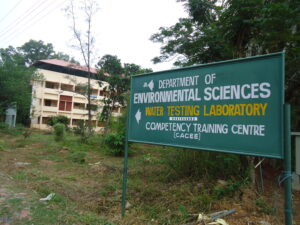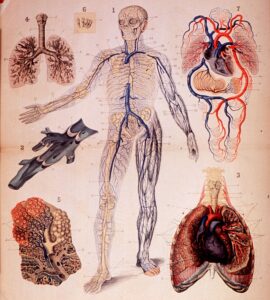- What is cancer?
- Cancer is a group of diseases characterized by the uncontrolled growth and spread of abnormal cells.
- What is the most common type of cancer?
- Skin cancer is the most common type of cancer.
- Define tumor.
- A tumor is an abnormal mass of tissue caused by the uncontrolled growth of cells.
- What is metastasis?
- Metastasis is the spread of cancer cells from their original site to other parts of the body.
- Name the process by which cancer cells evade the immune system.
- Immune evasion.
- Define carcinogenesis.
- Carcinogenesis is the process by which normal cells are transformed into cancer cells.
- Name a known carcinogen.
- Tobacco smoke is a known carcinogen.
- What is the role of oncogenes in cancer development?
- Oncogenes are genes that promote cell growth and division. Mutations in oncogenes can lead to uncontrolled cell growth and cancer development.
- Define tumor suppressor genes.
- Tumor suppressor genes are genes that regulate cell growth and division. Mutations in tumor suppressor genes can lead to uncontrolled cell growth and cancer development.
- What is the purpose of chemotherapy in cancer treatment?
- Chemotherapy is used to kill cancer cells or stop them from growing and dividing.
- Define radiation therapy.
- Radiation therapy uses high-energy radiation to kill cancer cells or stop them from growing and dividing.
- Name the surgical procedure used to remove a tumor.
- Tumor resection or tumor excision.
- What is the role of targeted therapy in cancer treatment?
- Targeted therapy targets specific molecules or pathways involved in cancer growth and progression.
- Define immunotherapy.
- Immunotherapy uses the body’s immune system to fight cancer.
- Name the type of cancer that affects the blood and bone marrow.
- Leukemia.
- What is the purpose of cancer staging?
- Cancer staging helps determine the extent of cancer spread and guides treatment decisions.
- Define biopsy.
- Biopsy is the removal of a small sample of tissue for examination under a microscope to diagnose cancer.
- Name the major types of skin cancer.
- Basal cell carcinoma, squamous cell carcinoma, and melanoma.
- What is the role of angiogenesis in cancer progression?
- Angiogenesis is the formation of new blood vessels. In cancer, angiogenesis supplies nutrients and oxygen to tumors, promoting their growth and metastasis.
- Define remission.
- Remission refers to the absence of signs and symptoms of cancer.
- Name the most common type of lung cancer.
- Non-small cell lung cancer (NSCLC) is the most common type of lung cancer.
- What is the purpose of hormone therapy in cancer treatment?
- Hormone therapy blocks the effects of hormones on cancer cells or reduces hormone levels in the body to slow or stop cancer growth.
- Define carcinoma.
- Carcinoma is a type of cancer that begins in epithelial cells, which line the internal and external surfaces of the body.
- Name the screening test used for early detection of breast cancer.
- Mammography.
- What is the purpose of genetic testing in cancer?
- Genetic testing helps identify inherited mutations that increase the risk of developing certain types of cancer.
- Define metastatic cancer.
- Metastatic cancer is cancer that has spread from its original site to other parts of the body.
- Name the most common type of cancer in men.
- Prostate cancer is the most common type of cancer in men.
- What is the purpose of palliative care in cancer treatment?
- Palliative care focuses on providing relief from the symptoms and stress of cancer, improving quality of life for patients and their families.
- Define lymphoma.
- Lymphoma is a type of cancer that affects the lymphatic system, which includes the lymph nodes, spleen, and bone marrow.
- Name the type of cancer that affects the cells of the immune system.
- Lymphoma.
- What is the purpose of adjuvant therapy in cancer treatment?
- Adjuvant therapy is given after primary cancer treatment (surgery, chemotherapy, or radiation therapy) to reduce the risk of cancer recurrence.
- Define sarcoma.
- Sarcoma is a type of cancer that originates in the connective tissues, such as bone, muscle, or fat.
- Name the most common type of cancer in women.
- Breast cancer is the most common type of cancer in women.
- What is the role of genetic mutations in cancer development?
- Genetic mutations can disrupt normal cell growth and division, leading to the development of cancer.
- Define neoplasm.
- Neoplasm is an abnormal mass of tissue, commonly referred to as a tumor.
- Name the risk factor associated with the development of colorectal cancer.
- Age, family history of colorectal cancer, and a diet high in red and processed meats are risk factors for colorectal cancer.
- What is the purpose of molecular profiling in cancer treatment?
- Molecular profiling helps identify genetic mutations and biomarkers in tumors to guide personalized cancer treatment.
- Define carcinoma in situ.
- Carcinoma in situ is a pre-invasive stage of cancer where abnormal cells are confined to the original site without invading surrounding tissues.
- Name the type of cancer that affects the plasma cells in the bone marrow.
- Multiple myeloma.
- What is the purpose of supportive care in cancer treatment?
- Supportive care helps manage the symptoms and side effects of cancer treatment, improve quality of life, and provide emotional support to patients and their families.
- Define oncology.
- Oncology is the branch of medicine that deals with the prevention, diagnosis, and treatment of cancer.
- Name the risk factor associated with the development of skin cancer.
- Ultraviolet (UV) radiation from the sun or tanning beds is a risk factor for skin cancer.
- What is the purpose of clinical trials in cancer research?
- Clinical trials evaluate the safety and efficacy of new cancer treatments, diagnostic methods, and preventive measures.
- Define prophylactic surgery.
- Prophylactic surgery is the surgical removal of healthy tissue or organs to reduce the risk of developing cancer.
- Name the type of cancer that affects the cells lining the cervix.
- Cervical cancer.
- What is the purpose of tumor markers in cancer diagnosis and monitoring?
- Tumor markers are substances produced by cancer cells or the body in response to cancer. They can be used for cancer diagnosis, monitoring treatment response, and detecting cancer recurrence.
- Define cachexia.
- Cachexia is a wasting syndrome characterized by unintended weight loss, muscle wasting, weakness, and fatigue, commonly seen in cancer patients.
- Name the type of cancer that affects the cells lining the uterus.
- Endometrial cancer.
- What is the role of the immune system in cancer surveillance?
- The immune system plays a critical role in identifying and eliminating cancer cells through immune surveillance.
- Define neoadjuvant therapy.
- Neoadjuvant therapy is given before primary cancer treatment (surgery, chemotherapy, or radiation therapy) to shrink tumors and improve the likelihood of successful treatment.



